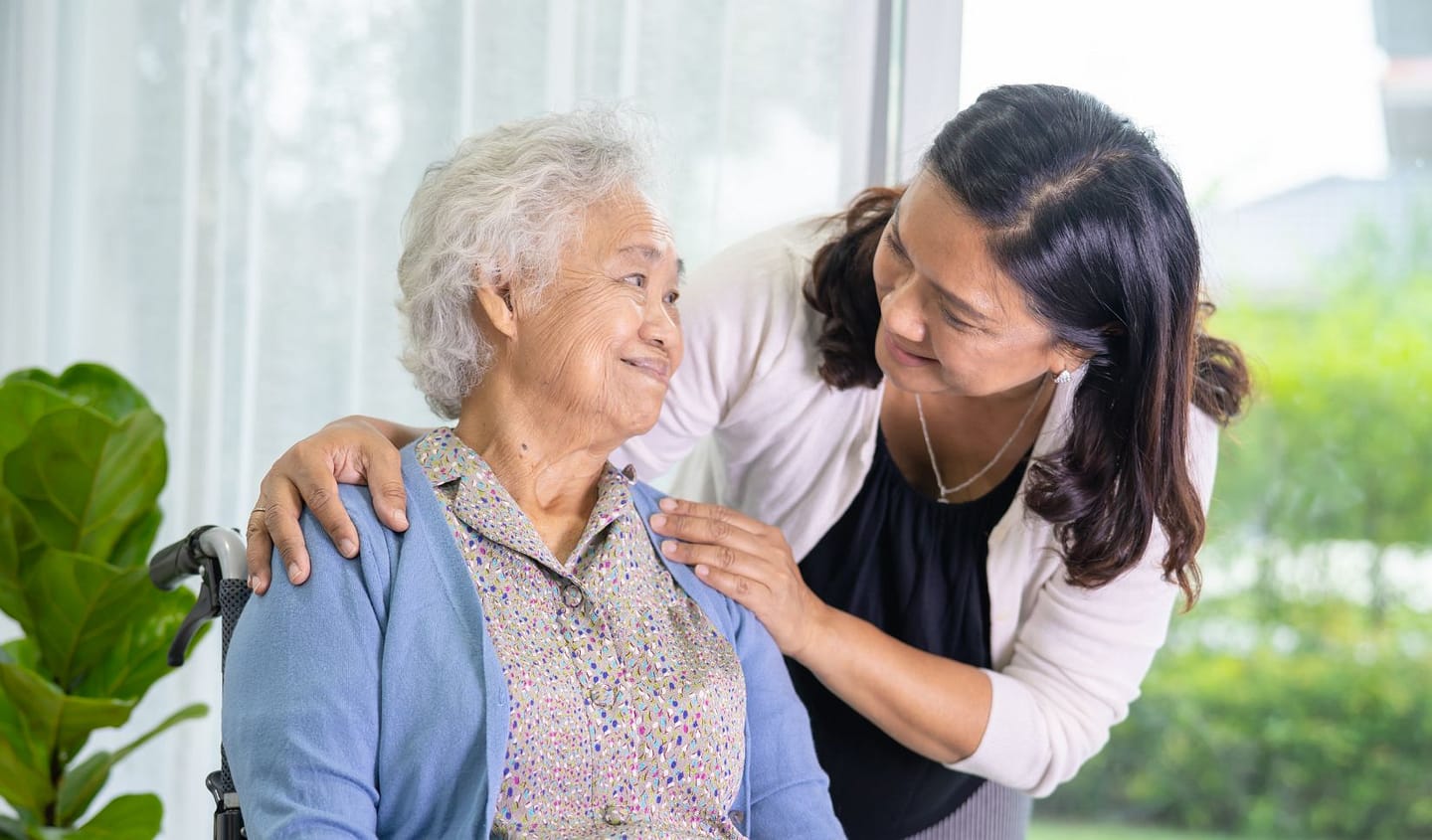What is a family caregiver?
Also called an informal caregiver, this is an unpaid individual who is typically not a medically trained professional. A family caregiver may be a spouse/life partner, family member, friend, or neighbor. In this role, the caregiver assists others with activities of daily living and/or medical tasks that can be performed in the home. These unsung heroes are often the primary source of support for seniors, the terminally ill, and people with disabilities in the U.S. They help with housekeeping, nursing tasks, bathing, feeding, dressing, and errands.
U.S. family caregiver statistics
With about 10,000 people turning 65 every day, there are not enough resources to take care of our elderly population; that’s why family caregivers often must get involved. Here are some statistics from the National Alliance of Caregiving’s 2020 report about unpaid family caregivers:
- Fifty-three million Americans provide unpaid care
- Nearly 20% do so for an adult with health or functional needs
- Twenty-six percent are caring for an individual with Alzheimer’s disease or dementia
- Almost one-quarter care for more than one person
- Twenty-three percent report that caregiving has caused their health to worsen
- Sixty-one percent still work
- Forty-five percent report financial impact due to their caregiving duties
Issues for family caregivers
Family caregivers often deal with a lot of stress, especially for those still working and juggling conflicting needs and schedules. The Caregiver Action Network (CAN) reports that caregiving takes a significant emotional, physical, and financial toll. For example, many adults in the sandwich generation manage their own family, personal, and professional lives while also caring for elderly parents. And with nearly half of all caregivers over age 50, many seniors who are facing their own health vulnerabilities are also performing a difficult “job” caring for a loved one.
Medicare benefits for hospice caregiving
In recognition of the impact on family caregivers, Medicare now covers respite care as a Medicare benefit for beneficiaries who are in hospice and have six months or less to live. This benefit enables caregivers to hire a trained care professional for up to five days and take a much-needed break while their loved one receives hospice care.
In addition to that respite, coordinated support services can reduce caregiver depression, anxiety, and stress. This enables family caregivers to provide care longer, avoiding or delaying the need for costly institutional care. A meal benefit from a health insurance plan is one way to get that support.
Food as medicine—and support for seniors and their caregivers
Did you know that many Medicare Advantage plans offer a meal benefit program for health plan members? This meal benefit includes delivering medically tailored meals to people with chronic medical conditions and those recently discharged from an acute-care facility (the post-acute discharge period).
Eating appropriately using the power of nutrition improves the overall quality of our health, especially for people with certain diseases. Food as medicine helps seniors maintain healthier and higher-quality lives. However, among older adults with chronic health conditions:
- Only 25% have a diet tailored to their health condition’s nutritional requirements.
- The percentage of people who follow specific diets for diabetes, renal disease, and congestive heart failure skyrockets from 22% to 90% when medically tailored meals are provided.
Many seniors who are Medicare Advantage members are not utilizing their meal benefit because:
- They don’t realize they may have a prepaid debit card available to buy healthy foods. We want all caregivers and adult children to know about this so they can encourage their elders and the chronically ill to use this benefit.
- They don’t take direct action to enroll in Medicare when they become eligible or do not enroll in the plan best suited for their needs. We encourage family members and close friends to help older adults research the various plans and the benefits they cover.
- As many of us experience, the American healthcare system is challenging to navigate, given the multitude of care facilities and rehabilitative services to understand. The websites care.com and caregiving.org are excellent sources of free advice for family caregivers, especially adult children helping make decisions about finances, health care, and social programs or activities so their parents stay active and engaged.
LiveWell’s medically tailored meals are fully prepared, nutritious meals hand-delivered to people’s doors. They support concerned caregivers who can’t always be there to shop or prepare meals and individuals who cannot physically manage meal preparation for themselves. The registered dietitians, nutritionists, and chef at LiveWell with Traditions create nutritionally balanced meals that taste great, so those who receive them enjoy every bite … and get the proper nutrition for their health condition. As an additional element of support, our trained drivers can provide a quick status check to make sure everything is OK and will report if something is amiss.
Contact LiveWell with Traditions for more information about our home-delivered meals for those in your care.



